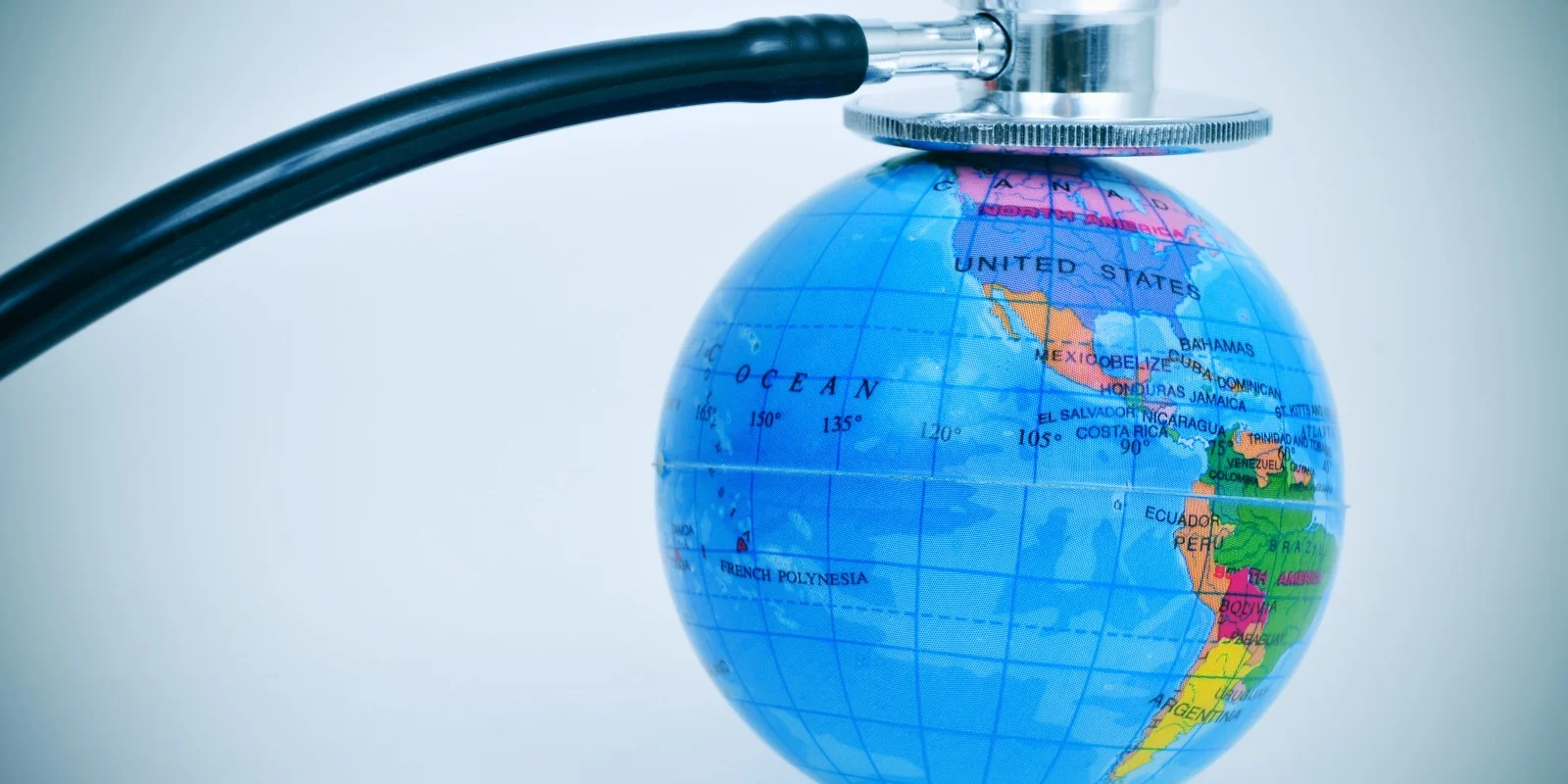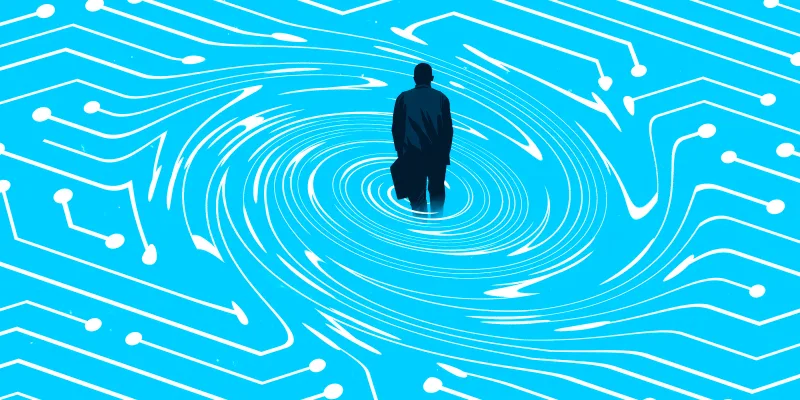
What motivates an emergency physician to advocate about climate change and other environmental issues? Epidemiologists, lung doctors and toxicologists are logical, but an ER doctor? The obvious answer is the right one — because ER doctors are on the front lines of healthcare. From the vantage point of emergency medicine, climate change is a clear and present danger to human health. When any sort of disaster strikes — an earthquake, flood, heat wave, terrorist, or volcanic eruption — the victims come to my emergency department. I’ve trained for it and have the disposition, team of professionals, and resources to deal.
When the barometer doesn’t cooperate, “acute on chronic” generates most climate-related patients. Very hot weather triggers bouts of congestive heart failure and worsens kidney conditions. Early and copious pollen seasons cause allergies. The patient with chronic lung disease, usually asthma or scarring caused by cigarette smoking, cannot tolerate smog, ground level ozone, and irritating particulate matter. Organ systems are interwoven, so if lungs don’t work properly, oxygen delivery is impaired to many vital organs. A person with coronary artery disease might have a heart attack, and someone with tenuous brain metabolism weaken or collapse. Climate change is a “force multiplier” adding to the burden of disease, and it already affects people you know, and soon hundreds of millions you will never meet. Sadly, the least fortunate of them will suffer the most.
We provide emergency care every day. Who responds to enormous natural disasters, cares for victims of wildland fires, warms the cold, and cools the hot? We do. Who administers lifesaving medications that dilate spastic airways? We do. When the hurricanes and floods inundate our coastal cities, who will care for the victims of rising waters, dispersed fecal bacteria, drowned children, and electrocuted rescuers? We will. We are very aware, and we care.
The medical profession is just beginning to really get its act together on issues of climate change. It supports good science and well-intentioned activism. It is open to discourse and differences of opinion. It is involved, and will increasingly be so, hopefully more in awareness and mitigation than in rapid response and humanitarian relief. However, if there continue to be catastrophic weather events, sea level rise, and forced migration, the action will be in search and rescue, disaster mitigation, and management of epidemics. Given what we already know and understanding historical patterns of eco-political denial of obvious societal malfeasance, we are in for a long haul.
The healthcare system itself is not impermeable to climate change. It can be overwhelmed. We observe in every major disaster that hospitals crumble, doctors and nurses lose their homes, and healthcare workers can’t make it to work. There are limits to the number of patients who can be effectively treated simultaneously. During a mass casualty incident, lives are often lost that might have been saved one at a time in less daunting or austere circumstances. When “the big one” hits, staff is overburdened, supplies run low, communications systems fail, and the best we can do is often not good enough. Critics are quick to cast blame on community officials for inadequate preparation. But how many citizens have built a fire-defensible space around their homes, have emergency food and supplies to last 72 hours, possess mapped escape routes, and understand basic first aid? In a crunch, would you be helpful or helpless?
In Enviromedics: The Impact of Climate Change on Human Health, Jay Lemery MD (another emergency physician) and I did our best to spell it out. Although the specialty of emergency medicine has not definitively joined doctors in a clarion call, let us now be among the first to state without equivocation that climate change is likely the greatest medical challenge ever faced. The list of effects is defined and increasingly recognized — vector migration with spread of formerly “tropical” diseases; heat waves; catastrophic weather events; food and water insecurity leading to civil discord and conflict; mass migration due to drought or sea level rise; and mental health issues ranging from depression to fatalism. This cannot be allowed to worsen. The art form is using our platform as trusted medical professionals to persuade everyone to be activists in their own unique ways, and to not desist because this is someone else’s problem or the situation is too daunting. If the prospect of change seems too difficult or efforts appear futile, then we need to find ways to create hope and personal energy sufficient to motivate action. We need to harness the best minds in our healing industry to determine how best to gather data, influence productive efforts, and face climate change head on.
Emergency medicine arose from a need to have the best and brightest in the medical profession care for all comers — rich and poor, advantaged and disadvantaged, smart and clueless — without consideration of finances, status, or any other personal characteristic. It is incumbent upon those of us who heal humanity one patient at a time to embrace the bigger picture of what we can do as individuals and collectively to heal the planet one country at a time. Doctors, nurses, hospital executives, and healthcare organization leaders have spoken out in the past about tobacco products, nuclear war, genocide, and other matters that cause human suffering. The situation demands science, education, policy, enforcement, and most of all, the collective will of the actors who are in control of societies, economies, and governments. The controversies are apparent, but the logic of preserving what we can and trying to avoid depletion of resources and irrevocable changes to our planet that will adversely affect human health are truths to us. We take a “doctor’s approach” because we believe we are facing a sick patient and want emphatically to bring human health to the front of the discussion.
We care about you. If your chest was hurting, you couldn’t breathe, and your pulse was undetectable, we wouldn’t ponder the situation. We’d do everything possible to make an accurate diagnosis and try to save your life. We’d act fast, because moments count. Should we be any less concerned about our planet?
What can health professionals do? Without a doubt, they should become involved. I recently heard a climate expert opine that perhaps the only hope left to persuade the general population that climate change is a critical issue is to rely upon the health profession as one of unequivocal trust. Here are suggestions for action:
- Learn about climate change, and in particular global warming. Other topics include destruction of habitats, sea level rise, food and water insecurity, migration of infectious disease vectors, climate justice, and human population growth and dynamics.
- Be conscious of your personal energy use.
- Analyze the energy use of your organization. Use best practices to use sustainable energy and lower consumption. Don’t pollute.
- Support environmental and climate education at all levels, notably in medical professional schools. Within this education should be an emphasis on the health impacts broadly defined — clinical, economic, and societal. Climate change is a public health issue, and should be featured prominently.
- Perform and support excellent science and assemble evidence about the effects of climate change on human health.
- Help the people and organizations that are trying to help us. Provide services and opinions to non-medical entities engaged in environmental efforts intended to save the planet and its inhabitants.
- Investigate and join reputable groups so that there can be strength in numbers. An example for medical societies is the Medical Society Consortium on Climate and Health. For hospitals, learn about Global Green and Healthy Hospitals.
Now begins the most important work of our lives. We cannot fail in this effort.
Dr. Paul S. Auerbach is an Emergency Medicine physician and author in the discipline, wilderness medicine. He is a founder and past president of the Wilderness Medical Society.







